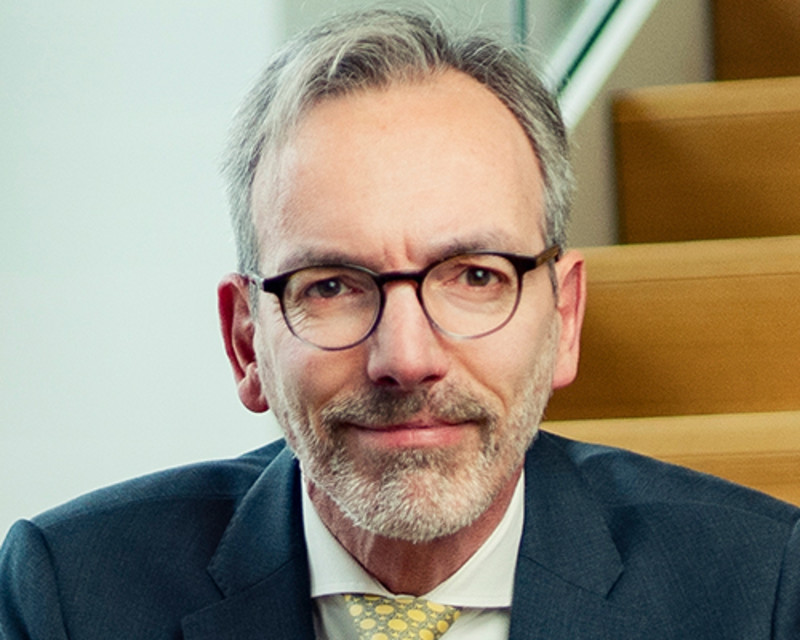

Be patient, EM fundamentals will pay off
After cutting his investment teeth in the emerging markets crises of the 1990s, Wim-Hein Pals, Robeco’s head of emerging markets, says EM economies are now much more stable, and valuations are very attractive.
まとめ
- Solid fundamentals and valuation discount mean EM will lead the next cycle
- Critical to focus on inflation risks to protect returns
- EM corporate governance concerns identical to DM, so discount is unjustified
A pivot towards emerging markets (EM) has been a high-profile investment theme in 2023 on expectations EM would outperform as the US Fed’s inflation fight reached completion, and US interest rates started to decline. That hasn’t happened, and the US market has rallied on the artificial intelligence theme in large-cap tech stocks, but the narrative of strong EM fundamentals is intact, says Wim-Hein Pals.
“We're very bullish on EM going forward the next couple of years with several tailwinds. In general, inflation levels in the emerging countries are way below developed markets, which gives them room to lower interest rates earlier than in developed markets,” he says.
Pals identifies China, where monetary easing was already underway, and Brazil as countries to lead the global easing cycle. Real interest rates are 8% in Brazil so there is significant room to ease policy, with other Latin American countries and Asian countries to follow. He says that huge foreign exchange reserves, trade surpluses, and prudent fiscal policies characterized almost all major emerging countries, highlighting Thailand, South Korea, Taiwan, and China, while corporate earnings had bottomed out and are now turning higher.
“Valuation is a no-brainer in these markets. EM is amazingly cheap from a historical perspective relative to developed markets. And also relative to interest rates, it's really, really undervalued.”
Pals’ expectation is that as soon as the Fed stops tightening, emerging markets will lead the next cycle with the factors that saw DM outperform in the previous decade now absent.
“Quantitative easing has stopped or is disappearing, real rates are becoming more normal, and you've got EM where the fundamentals are superior. The setup is very clear.”
EM corporate governance discount no longer makes sense
Another factor depressing EM valuations versus DM peers has been perceived corporate governance risk, but Pals says this is no longer justified.
“There’s a misconception that there is substantially more corporate governance risk in EM than in DM. I question that because there is the same sort of risks in both. Given where valuations are, I think there is substantially more governance risk in the US for an equity investor than say South Korea.”
Pals points to several recent high-profile corporate governance scandals in developed markets, including Wirecard and Credit Suisse.
“Don’t get me wrong: there are examples in China, India and elsewhere but you're paying 30% less for the same earnings as an equity investor in EM relative to DM,” he says.
He adds that Robeco’s focus on sustainable investment with a team of 50 dedicated analysts and engagement specialists is making stock selection in EM more sophisticated. “There is a huge focus on governance and transparency, on the quality of the books, and more and more on the environmental and social aspects,” he says.
How to approach Turkey
The solid EM fundamentals are not universal, with Turkey and Argentina both outliers with embedded high inflation and weak currencies.
“I always focus on inflation, which can ruin your returns as an equity investor. We've had several cases in the past and we currently have Turkey as the perfect example. You can say it’s the poster child of inflation getting out of hand and of policies that don't make sense, like lowering interest rates in an environment of ballooning inflation, as in the past four or five years.”
Pals says Turkey faces a huge adjustment as orthodox policymakers are brought in to help the economic situation through monetary tightening.
“That will bring back foreign trust and improve foreign sentiment towards Turkish assets and might increase foreign direct investment going into Turkey. The location is very interesting for a lot of multinational corporates and there's potential for massive investments from foreign multinational corporates,” he says.
最新のインサイトを受け取る
投資に関する最新情報や専門家の分析を盛り込んだニュースレター(英文)を定期的にお届けします。
Lessons from the 1990s
Pals’ EM investment career started at Robeco in 1992 and during that decade he navigated the Mexican ‘tequila’ crisis in 1994, the Asian crisis in 1997 and the Russia crisis in 1998. He says he has learned to avoid a common mistake in EM investing; entering or re-entering a market too soon after a crisis to try and front-run a recovery.
“When is the end of the Turkey crisis? We don't know. That's what we learned in Thailand, in 1997 and 1998.”
Pals says that after correctly anticipating the Thai crisis and being short the Thai baht and long Thai exporters in early 1997, they had been able to take profit and then re-enter the market in late 1997 and early 1998, as surviving Thai bank equities plunged to fire-sale levels of 0.3x book value.
“There was continued negative newsflow and Thai banks fell further, so we bought more at 0.2x book value. But in the meantime, you lose and underperform.”
The investment eventually came good at the end of 1998 when banks recovered to 0.6x book value, “but you could have been much better off by waiting a little longer and letting the baht stabilize. It's probably better waiting a bit too long and losing a bit of the upside than being too early and going down another 20%, for instance,“ he says.
Be patient and watch the Fed
Overall Pals says the US Federal Reserve’s still hawkish stance is making potential EM investors wary of too much exposure, despite the historic valuation discount. “But if the Fed stops hiking rates, then the emerging central banks could start cutting rates. That could be the trigger for a longer-term outperformance of EM relative to DM. The interest rate bill of a lot of corporates is high, so earnings recovery will be in play too.”
重要事項
当資料は情報提供を目的として、Robeco Institutional Asset Management B.V.が作成した英文資料、もしくはその英文資料をロベコ・ジャパン株式会社が翻訳したものです。資料中の個別の金融商品の売買の勧誘や推奨等を目的とするものではありません。記載された情報は十分信頼できるものであると考えておりますが、その正確性、完全性を保証するものではありません。意見や見通しはあくまで作成日における弊社の判断に基づくものであり、今後予告なしに変更されることがあります。運用状況、市場動向、意見等は、過去の一時点あるいは過去の一定期間についてのものであり、過去の実績は将来の運用成果を保証または示唆するものではありません。また、記載された投資方針・戦略等は全ての投資家の皆様に適合するとは限りません。当資料は法律、税務、会計面での助言の提供を意図するものではありません。 ご契約に際しては、必要に応じ専門家にご相談の上、最終的なご判断はお客様ご自身でなさるようお願い致します。 運用を行う資産の評価額は、組入有価証券等の価格、金融市場の相場や金利等の変動、及び組入有価証券の発行体の財務状況による信用力等の影響を受けて変動します。また、外貨建資産に投資する場合は為替変動の影響も受けます。運用によって生じた損益は、全て投資家の皆様に帰属します。したがって投資元本や一定の運用成果が保証されているものではなく、投資元本を上回る損失を被ることがあります。弊社が行う金融商品取引業に係る手数料または報酬は、締結される契約の種類や契約資産額により異なるため、当資料において記載せず別途ご提示させて頂く場合があります。具体的な手数料または報酬の金額・計算方法につきましては弊社担当者へお問合せください。 当資料及び記載されている情報、商品に関する権利は弊社に帰属します。したがって、弊社の書面による同意なくしてその全部もしくは一部を複製またはその他の方法で配布することはご遠慮ください。 商号等: ロベコ・ジャパン株式会社 金融商品取引業者 関東財務局長(金商)第2780号 加入協会: 一般社団法人 日本投資顧問業協会

























